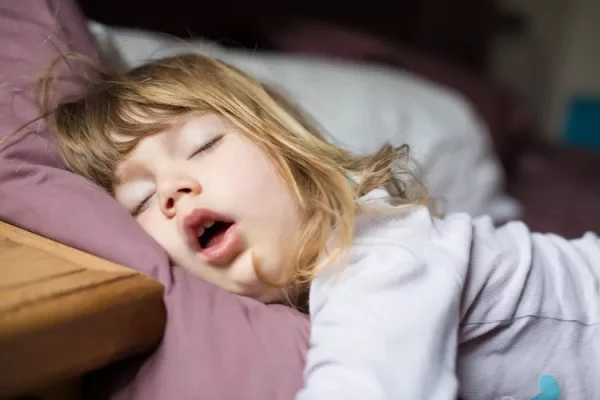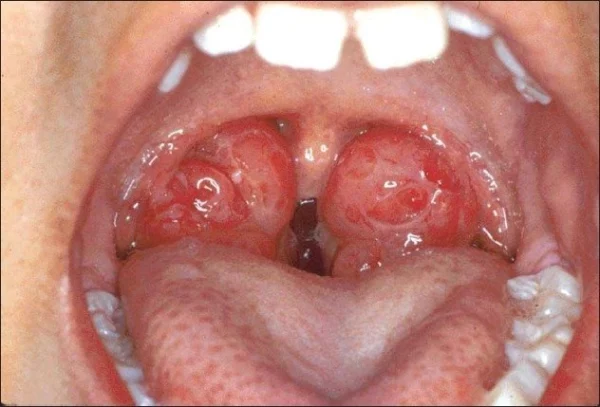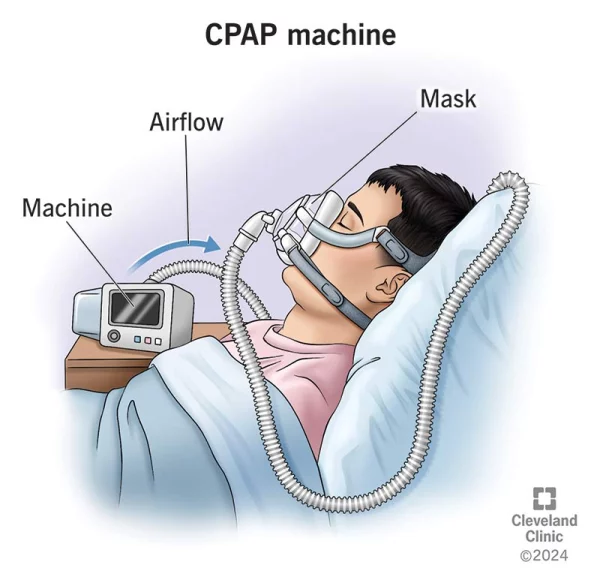Sleep apnea in preschoolers is a dangerous condition with serious consequences for their health and development. This condition occurs when breathing is interrupted during sleep, often caused by enlarged tonsils or adenoids, blocking the airway. According to the American Academy of Pediatrics (2019), over 2% of children aged 3-6 years are diagnosed with obstructive sleep apnea (OSA).

“Sleep apnea not only affects sleep but also hampers physical and intellectual development due to oxygen deprivation,” stated Dr. Gary E. Freed, Director of the Pediatric Sleep Laboratory at Emory University, 2020.
Children with sleep apnea often exhibit symptoms such as loud snoring, interrupted breathing, and mouth breathing during sleep. According to a report from Mayo Clinic (2018), 85% of cases of obstructive sleep apnea can be resolved through tonsil and adenoid removal surgery.

In many cases, signs of sleep apnea are overlooked because parents mistake it for simple snoring. However, other symptoms like irritability, daytime crankiness, and reduced focus in learning could indicate oxygen deprivation during sleep. A report by the World Health Organization (WHO, 2021) emphasized that over 50% of children with OSA struggle to maintain intellectual development due to chronic oxygen deficiency.
“Insufficient deep sleep caused by sleep apnea in children can impair growth hormone secretion, affecting their height and weight,” according to the Royal College of Paediatrics and Child Health (2020).
Additionally, children are at risk of cardiovascular issues such as hypertension and increased risk of heart failure in severe cases. Experts at Harvard Medical School (2019) advise parents to seek medical consultation promptly if they notice any abnormal sleep patterns in their child.

The diagnosis process for sleep apnea requires parents to monitor their child’s sleep habits, accompanied by advanced tests like polysomnography, a method that records brain waves, eye movements, and oxygen levels during sleep. Timely intervention not only improves the child’s sleep quality but also protects their health and enhances their quality of life in the future.


HPX24h > Parenting Tips > Sleep Apnea in Preschoolers: Understanding It to Protect Your Child’s Health
Top Reads from This Category
Parenting Tips
Why Your Child Might Be Coughing Disruptively During Sleep?
Parenting Tips
How to Talk to Your Child About Smoking Issues
Parenting Tips
Talking To Children About Sexuality: How To Make It Easier?
Parenting Tips
Discover How Japan’s Education System Creates Self-Disciplined, Responsible Students Without the Need for Pressure
Parenting Tips
Tips for Helping Preschoolers Develop Healthy Sleep Habits
Parenting Tips
Teaching Children Respect: Simple Tips for Parents with Kids Aged 6 to 8
Parenting Tips
How to Talk to Children About Alcohol (Ages 6-8)
Discover New Topics
Parenting Tips
How to Prevent a 2-Year-Old from Throwing Things?
Health
Natural Remedies for Relieving Constipation: Small Changes, Big Results – No Medication Needed
Animals
Can Hyena Dogs Be as Smart as Primates?
Science
China’s Hypersonic Jumbo Jet Could Cut Beijing to New York Flight Time to Just 2 Hours
Science
Work 3.5 Days a Week and Live to 100: This Could Be Your Future
Science
Extinct Black Rhinos Could Make a Comeback with Genetic Technology
Health
How Losing Just 5% of Your Weight Can Reduce the Risk of Diabetes
Space
Three Earth-Like Planets That Could Support Life: New Discovery from NASA
Science
Why Do Adult Brains Continue to Generate New Neurons?
Science
NSF Cuts 168 Jobs Amid Booming Science and Technology: Paradox or Strategic Move?
Science
The Science Behind CRISPR: Can Animal Genetic Modification Lead Us to a Better Future?
Health
Heart and Brain Health: How to Effectively Prevent Cognitive Decline?
Fitness
Walking or Running: Which Is Better for Health and Weight Loss?